In recent years, Oscar Nominees Best International Film, the Motion Picture Academy has made a concerted effort to represent more diverse and international perspectives, and the expansion of its membership has put “subtitled films” on the radars of voters — and, in some cases, in contention for the biggest awards. The turning point came just three years ago, when South Korea’s Parasite surprised nearly everyone when it took home Oscar’s top prize.
As streaming services make international films more accessible, the breadth of stories being told and discovered by viewers is widening. The 95th Oscars Shortlist for International Feature Films is the most geographically inclusive in the Academy’s history.
Whittling it down to five was no small task. Films from 92 countries and regions were eligible in the International Feature category. Behold, the final few that earned 2023 Oscar nominations — and why they resonate.
Close (Belgium)
Winner of the Grand Jury prize at the 2022 Cannes Film Festival, Close is an evocative coming-of-age story about friendship, lost innocence, love, heartbreak, forgiveness, and healing. This is Director Luka Dhont’s exceptional follow-up to his 2018 Camera d’Or-winning debut Girl. While both films dealt with  similar topics about peer pressure and humanity’s innate desire to belong, Close is more subtle and understated in its intentions and execution.
similar topics about peer pressure and humanity’s innate desire to belong, Close is more subtle and understated in its intentions and execution.
The story: Two impressionable teen best friends Leo (Eden Dambrine) and Remi (Gustav De Waele) are joined at the hip, but peer pressure and an unspeakable tragedy have torn apart their innocence and, inevitably, their precious friendship.
Why it resonates: The deep-seated longing for connection and acceptance are innately human needs that everyone can relate to, powerful enough to drive so many to go to great lengths just to fit in and feel accepted. Close navigates through the intricacies of these inherent human desires by portraying them through the innocent eyes of impressionable teens who are hounded by peer pressure and social norms.
Why is it Oscar-worthy: Beautifully directed and magnificently acted, Close introduces talented newcomers Eden Dambrine and Gustav De Waele, who both deliver authentic performances. The script is lean yet impactful, and the fact that director Dhont achieve so much with minimal dialogue is a testament to his skill and fearlessness as a filmmaker.
The Quiet Girl (Ireland)
It’s a hushed tale that manages to speak volumes. The Quiet Girl is a poignant coming-of-age drama minus the unnecessary noise. It’s effective in its stillness and consequential in its conciseness—truly an exceptional debut for writer-director Colm Baired.
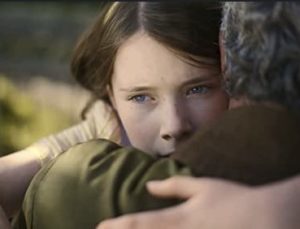 The story: Cait (Catherine Clinch), a nine-year-old girl in Rural Ireland is sent to foster care for the summer to keep her away from her dysfunctional family. Initially, she flourishes in her adoptive home, but when she unexpectedly discovers a painful secret, her newfound stability gets shaken to the core.
The story: Cait (Catherine Clinch), a nine-year-old girl in Rural Ireland is sent to foster care for the summer to keep her away from her dysfunctional family. Initially, she flourishes in her adoptive home, but when she unexpectedly discovers a painful secret, her newfound stability gets shaken to the core.
Why it resonates: Our earliest experiences shape our beliefs and how we see the world. In The Quiet Girl, child trauma and the subsequent coping mechanisms are presented with deep sincerity and thoughtful introspection. It’s the film’s constant exercise in restraint and belief in the silent moments that make it more impactful than the sum of its parts.
Why is it Oscar-worthy: Winner of seven Irish awards as well as the Best European award for Best Cinematographer, The Quiet Girl is a masterclass in the art and power of simple storytelling. It has a brilliant cast and an exquisite first-time director who manages to accomplish a lot with very little dialogue.
All Quiet on the Western Front (Germany)
Nominated for both Best Picture and Best International Feature, All Quiet on the Western Front is harrowing portrait of the horrors of war and the deep emotional, physical, and psychological scars it creates. The film is a departure from most war movies as  there’s no one to root for and no silver lining.
there’s no one to root for and no silver lining.
Adapted from Eric Maria Remarque’s groundbreaking novel from almost a century ago, it presents a horrific lesson that humanity has failed to learn over and over again: War is an unmitigated tragedy regardless of its justifications.
The story: When 17-year-old German soldier Paul (Felix Kammerer) joins the Western Front of World War I, he makes a dreadful realization that the reasons that persuaded him to go to war pale in comparison to the horrors he’s experienced on the battlefield as he fights to survive in a senseless war with no end in sight.
Why it resonates: The brutal lessons of war always seem to fall on deaf ears as we fail to learn from our bloody history. With the Ukraine-Russia war (Europe’s biggest war since World War II) still raging, the anti-war sentiments depicted in this film are as powerful and urgent as ever. Perhaps it won’t change anything, but it presents an important argument for the futility of war.
Why is it Oscar-worthy: All Quiet on the Western Front led the nominations this year for the British Academy Film Awards (BAFTA) with 14 nods. The movie was recognized in the film category, adapted screenplay, supporting actor, and original score among other things. It’s powerful, graphic, and haunting with masterful direction with gripping performances from the cast; definitely an Oscar frontrunner.
EO (Poland)
Unlike any other film made for grownups, EO shows the beauty and perils of the world from the point of view of an animal. In this case — a donkey. Sincere and heartfelt, it’s a story about freedom and the delicate human-animal bond.
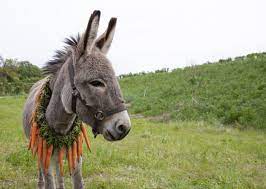 The story: A former circus donkey meanders across Europe to finally experience freedom, encountering different characters – good and bad – that will help shape his perspective on life.
The story: A former circus donkey meanders across Europe to finally experience freedom, encountering different characters – good and bad – that will help shape his perspective on life.
Why it resonates: The world is a strange place, especially when viewed through the pure and impressionable eyes of an animal, and it’s profoundly unnerving. By not anthropomorphizing the protagonist, EO allows us to step into the hooves of a donkey and experience his own story even when it means seeing ourselves as a villain. It’s an interesting role reversal that will make you think more about the way we treat all living beings.
Why is it Oscar-worthy: Director Jerzy Skolimowski is a master storyteller. He was able to make a deeply moving film using an unlikely protagonist with considerable limitations. With stunning cinematography, exquisite framing, and an excellent musical score, EO brings warmth and charm that human actors oftentimes fail to evoke.
Argentina, 1985 (Argentina)
Deftly directed and masterfully acted, Argentina, 1985 is a tale about social atrocities committed by an abusive government and the sacrifices that people are willing to make to bring the perpetrators to  justice. Directed by Santiago Mitre, the film is a case study of the triumph of the human spirit and how the justice system, on rare occasions, can be impartial and objective.
justice. Directed by Santiago Mitre, the film is a case study of the triumph of the human spirit and how the justice system, on rare occasions, can be impartial and objective.
The story: Inspired by true events, Argentina, 1985 is an impassioned dramatization of how public prosecutors Luis Moreno Ocampo (Peter Lanzani), Julio Cesar Strassera (Ricardo Darin), and their inexperienced legal team waged a ‘David vs. Goliath’ courtroom battle against Argentina’s bloodiest military dictatorship in 1985 — despite the dangers and against insurmountable odds.
Why it resonates: A rousing historical story about bringing abusive leaders to justice, Argentina, 1985 captures a rare moment when ordinary people rose up and actually won against a brutal regime. The film is relatable as it avoids sensationalizing the drama, mostly relying on gripping testimonies of the survivors and victims of the military junta. A reminder that good has triumphed over evil in recent history — and that speaking truth to power is not necessarily an exercise in futility.
Why is it Oscar-worthy: Skillfully directed by Mitre, the historically important drama transitions from the archival footage to reenactments seamlessly, adding to the believability and gravitas of the film. It also features riveting performances from Darin and Lanzani, who portray the unlikely duo masterfully. Ocampo (Lanzani), a believer in the truth and integrity of the trial, provides the perfect foil for Strassera (Darin), who plays the skeptic and reluctant participant in the proceedings.
Stay tuned for the international films from the Oscar Short List that didn’t get the final nods — but still made ripples.


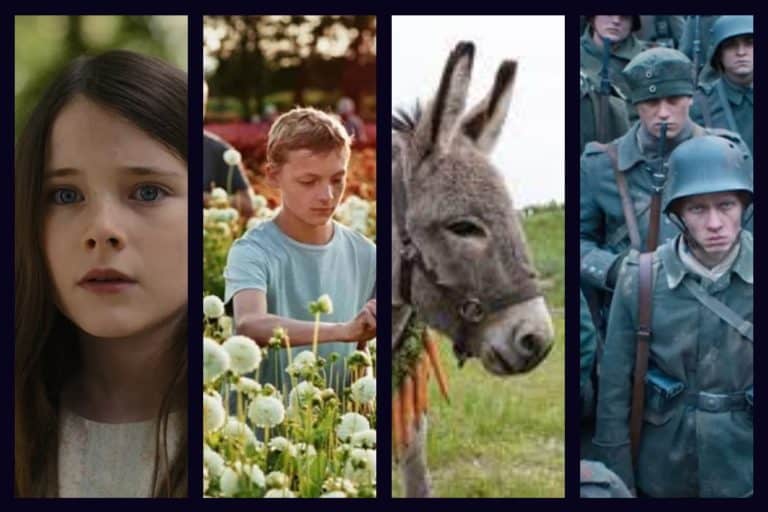
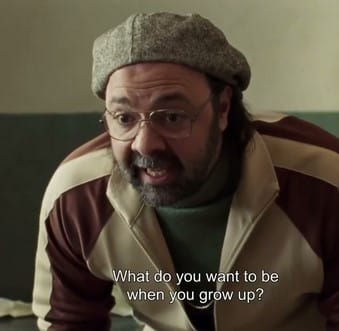

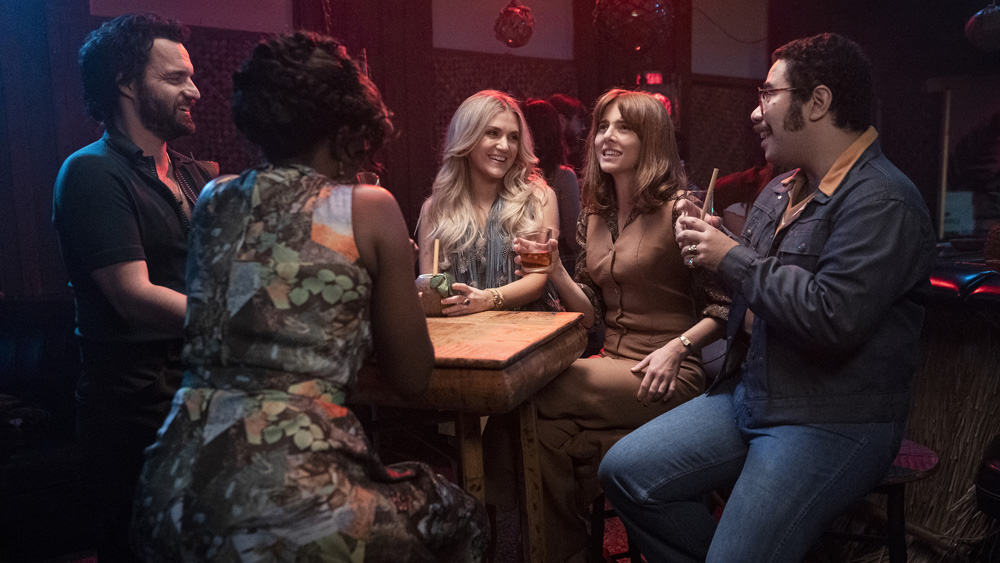



Start a watercooler conversation: